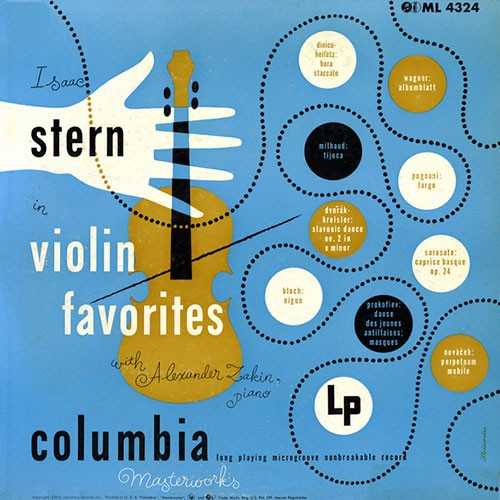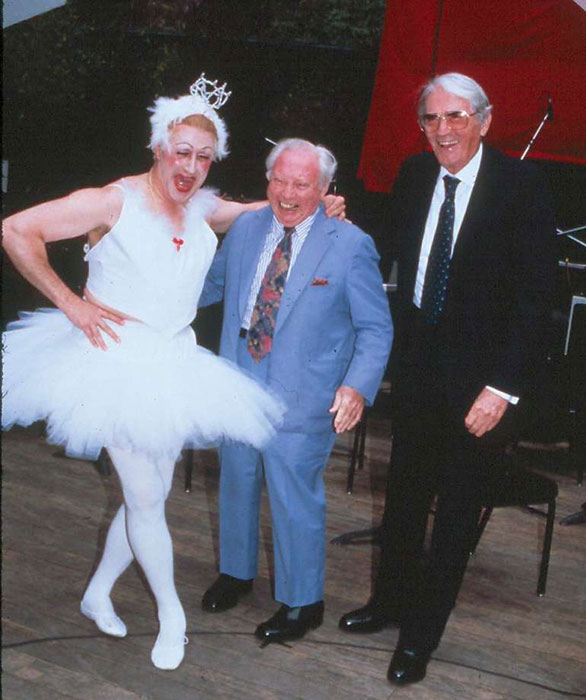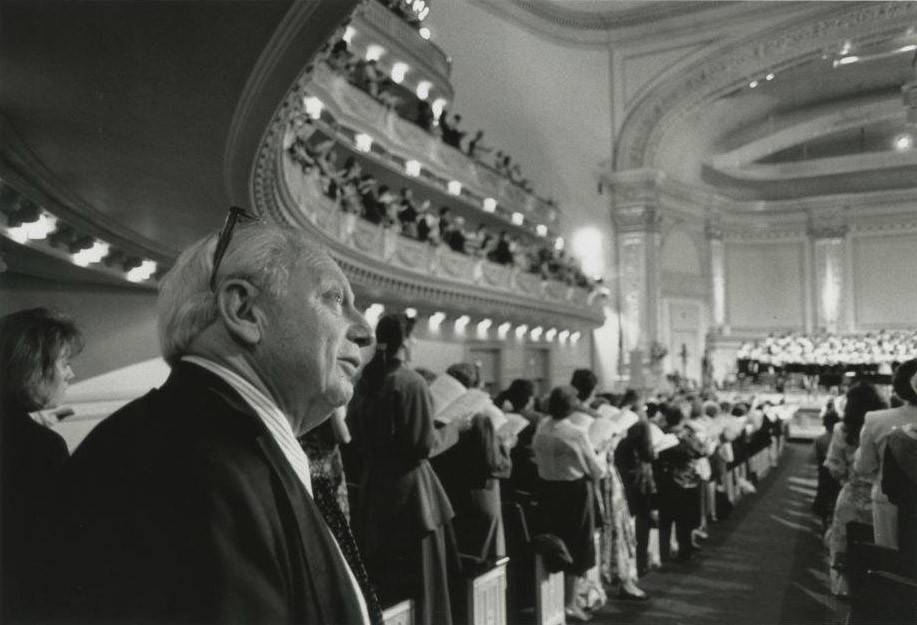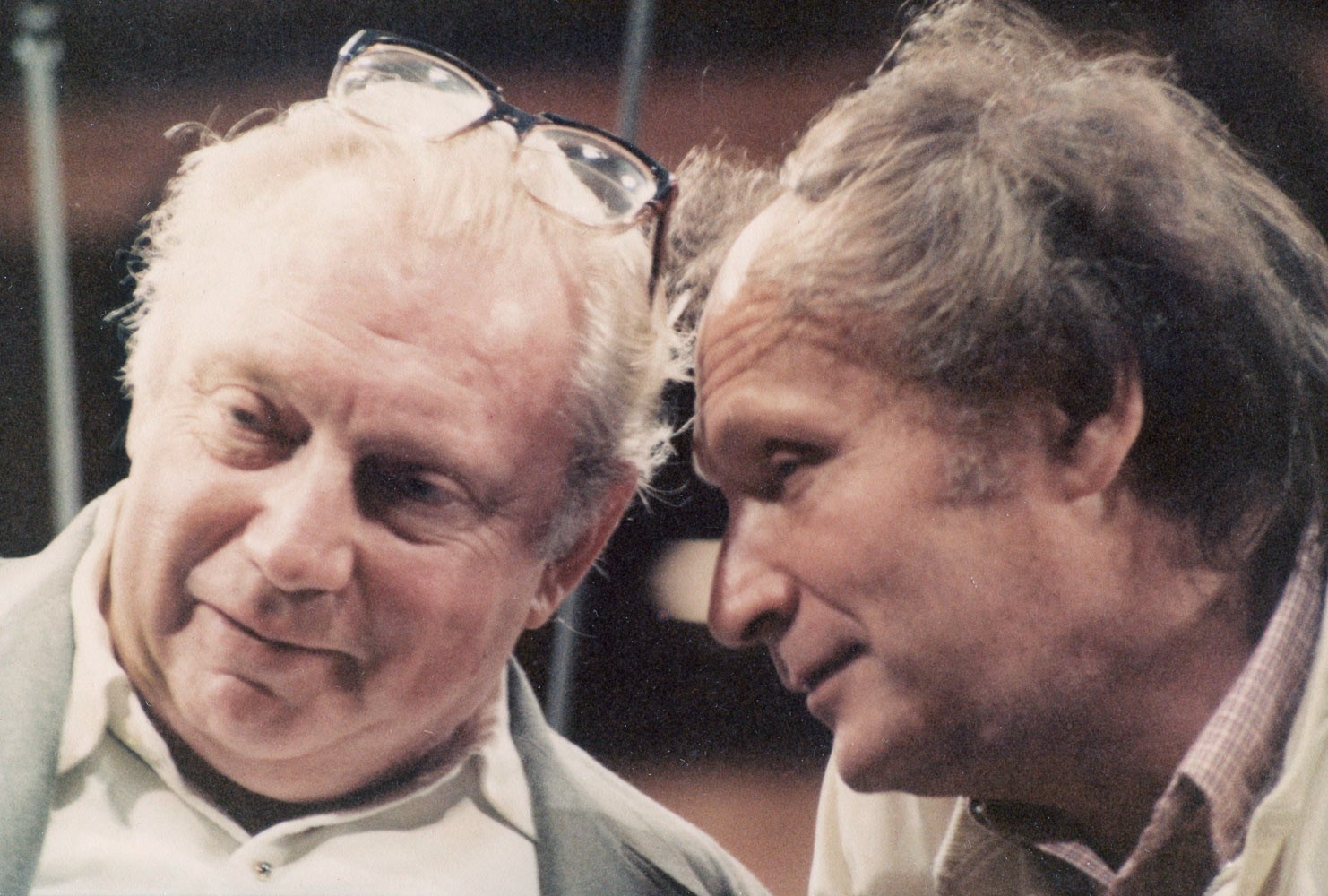ISAAC STERN LEGACY
The commemoration of Isaac Stern’s centenary aims to be more than just a celebration of his accomplishments as one of the foremost American violinists of the 20th century. As an instrumentalist, musician, teacher, cultural ambassador, social advocate, and civic leader, he left an indelible mark on the musical and cultural landscape around the world, and tirelessly adhered to his belief in young people and in music as an agent of change and a force for good.
To honor his legacy in the spirit of his lifelong activism, it is the goal of the Isaac Stern Centennial in 2020 to initiate a yearlong series of events in his name, not just in performance, but in calls to action and service in and with music.
This website is a virtual museum that reflects Isaac Stern’s life, and invites uploaded contributions of memories, stories, photos, or announcements of events — anything inspired by Isaac Stern’s legacy. There is no offering too large or too small.
ORDER The Centennial Collection
Complete Columbia Recordings of violinist
Isaac Stern in honor of his 2020 Centenary.
THE PRIME OF ISAAC STERN
Complete Analogue Recordings: 1945–80
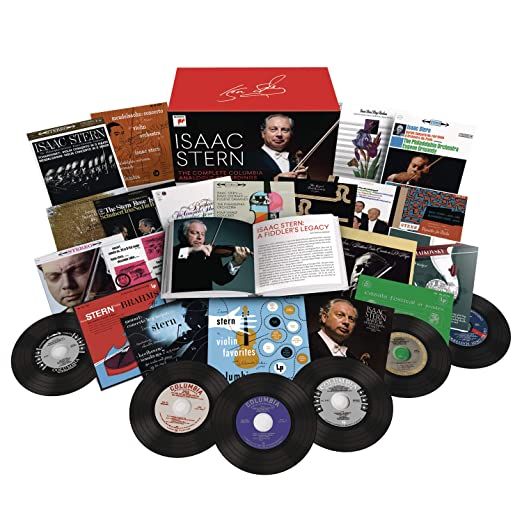
Isaac Stern would have turned 100 in 2020. To mark this beloved artist’s centenary, Sony Classical is proud to present a new edition of his entire American Columbia analogue discography: 75 CDs of the recordings that established the Ukrainian-born American violinist’s worldwide reputation as one of the outstanding musical figures of his time.
read more
Like so many other of history’s famous fiddlers, Stern was a child prodigy, entering the conservatory in San Francisco (where his family had settled) when he was only eight. In 1936, at 16, he made his recital debut and played with the San Francisco Symphony under Monteux and the Los Angeles Philharmonic under Klemperer. His first New York appearance came in 1937, his European debut after the war, in 1948. By then, much of the world had already heard if not seen him, performing classical showpieces under Franz Waxman’s baton on the soundtrack of the popular 1946 Warner Bros. film Humoresque. An album of selections from the movie, first issued by Columbia on 78s in 1947, appears on CD for the first time in this new set. They include Waxman’s Carmen Fantasy, a thrilling arrangement for Stern’s “Hollywood debut”.
The violinist’s earliest releases, beginning in 1946, already included the indispensable concertos of Tchaikovsky, Mendelssohn, Wieniawski, Brahms and others, works he would revisit in the studio at various stages of his career. One telling example: Stern’s 1951 recording of the Sibelius concerto, with Beecham conducting the Royal Philharmonic, immediately was held up as a rival to Heifetz’s iconic prewar recording, also under Beecham. A recent survey of Sibelius recordings in the leading string magazine, The Strad, declares that “the young Stern’s tone already burns” in 1951, then extols his second recording, made in stereo with Ormandy and the Philadelphia in 1969: “Stern is even more intense, more pointed, more rhythmically incisive in the outer movements, retaining and refining his total command over the sustained line in the second movement … Everyone in the session is digging in, and the sound is a miracle of balance; it hasn’t aged a day.”
Needless to say, the new collection holds even more than Stern’s acclaimed recordings of virtually every major violin concerto in the repertoire, from Bach, Vivaldi and Mozart to Prokofiev, Bartók and Berg, with conductors including Mitropoulos, Walter, Szell and, above all, Ormandy and Bernstein – not to mention Stravinsky’s concerto under the composer’s baton, and newer specimens created expressly for Stern by Penderecki and Rochberg.
Also on full display is Stern’s extraordinary love and affinity for chamber music: much of the sonata repertoire explored with his longtime preferred accompanist, pianist Alexander Zakin, including the first time on CD for their mono recordings of violin sonatas by Mozart, Franck, Brahms (all three) and Bartók; the great piano trios surveyed with his regular partners Leonard Rose and Eugene Istomin; and treasured collaborations with Pablo Casals and his festival ensembles that featured such distinguished players as Alexander Schneider, Milton Katims, Paul Tortelier and Myra Hess – including the first CD releases of the Brahms Second String Quintet and Schumann Piano Quintet from 1952. Like that Sibelius recording and so many others in this vast new Isaac Stern edition, they haven’t aged a day.
read less

